Related Research Articles

Russian literature refers to the literature of Russia and its émigrés and to Russian-language literature. The roots of Russian literature can be traced to the Middle Ages, when epics and chronicles in Old East Slavic were composed. By the Age of Enlightenment, literature had grown in importance, and from the early 1830s, Russian literature underwent an astounding golden age in poetry, prose and drama. Romanticism permitted a flowering of poetic talent: Vasily Zhukovsky and later his protégé Alexander Pushkin came to the fore. Prose was flourishing as well. Mikhail Lermontov was one of the most important poets and novelists. The first great Russian novelist was Nikolai Gogol. Then came Ivan Turgenev, who mastered both short stories and novels. Fyodor Dostoevsky and Leo Tolstoy soon became internationally renowned. Other important figures of Russian realism were Ivan Goncharov, Mikhail Saltykov-Shchedrin and Nikolai Leskov. In the second half of the century Anton Chekhov excelled in short stories and became a leading dramatist. The beginning of the 20th century ranks as the Silver Age of Russian poetry. The poets most often associated with the "Silver Age" are Konstantin Balmont, Valery Bryusov, Alexander Blok, Anna Akhmatova, Nikolay Gumilyov, Sergei Yesenin, Vladimir Mayakovsky, and Marina Tsvetaeva. This era produced some first-rate novelists and short-story writers, such as Aleksandr Kuprin, Nobel Prize winner Ivan Bunin, Leonid Andreyev, Fyodor Sologub, Yevgeny Zamyatin, Alexander Belyaev, Andrei Bely and Maxim Gorky.
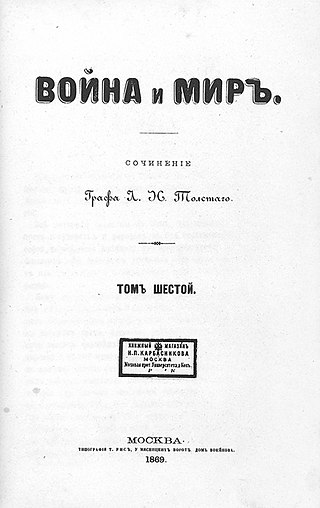
War and Peace is a literary work by the Russian author Leo Tolstoy that mixes fictional narrative with chapters on history and philosophy. It was first published serially, then published in its entirety in 1869. It is regarded as Tolstoy's finest literary achievement and remains an internationally praised classic of world literature.
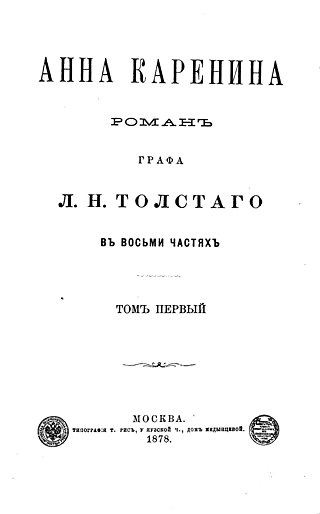
Anna Karenina is a novel by the Russian author Leo Tolstoy, first published in book form in 1878. Widely considered to be one of the greatest works of literature ever written, Tolstoy himself called it his first true novel. It was initially released in serial installments from 1875 to 1877, all but the last part appearing in the periodical The Russian Messenger.
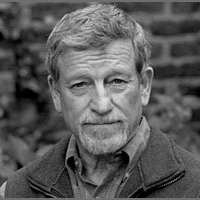
Michael Scammell is an English author, biographer and translator of Slavic literature.

Andrei Donatovich Sinyavsky was a Russian writer and Soviet dissident known as a defendant in the Sinyavsky–Daniel trial in 1965.
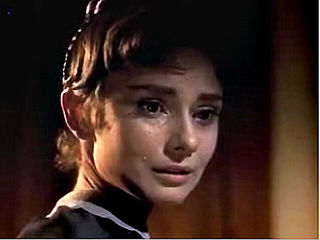
Countess Natalya "Natasha" Ilyinichna Rostova is a central fictional character in Leo Tolstoy's 1869 novel War and Peace. She is the daughter of Ilya Rostov, a loving, kind, and generous nobleman. Natasha is based on both Tanya Behrs, Tolstoy's sister-in-law, and Sophia Tolstaya, Tolstoy's wife.
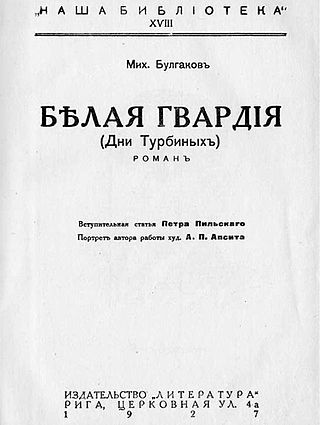
The White Guard is a novel by Mikhail Bulgakov, first published in 1925 in literary journal Rossiya. It was not reprinted in the Soviet Union until 1966.
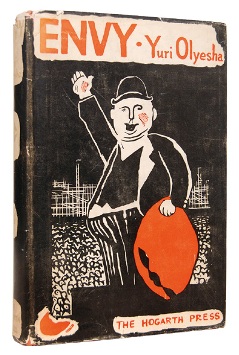
Envy is a satirical novel by the Russian writer Yury Olesha, first published in 1927.
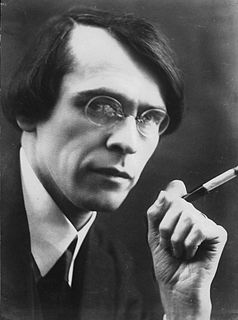
Vladislav Felitsianovich Khodasevich was an influential Russian poet and literary critic who presided over the Berlin circle of Russian emigre litterateurs.

Nina Nikolayevna Berberova was a Russian writer who chronicled the lives of anti-communist Russian refugees in Paris in her short stories and novels. She visited post-Soviet Russia. Her 1965-revision of the Constance Garnett translation of Leo Tolstoy's Anna Karenina with Leonard J. Kent is considered the best translation so far by the academic Zoja Pavlovskis-Petit.
Richard Pevear and Larissa Volokhonsky are literary translators best known for their collaborative English translations of classic Russian literature. Individually, Pevear has also translated into English works from French, Italian, and Greek. The couple's collaborative translations have been nominated three times and twice won the PEN/Book-of-the-Month Club Translation Prize. Their translation of Dostoevsky's The Idiot also won the first Efim Etkind Translation Prize.
Joel Carmichael was an American historian, magazine editor, and translator.

Count Lev Nikolayevich Tolstoy, usually referred to in English as Leo Tolstoy, was a Russian writer who is regarded as one of the greatest authors of all time. He received nominations for the Nobel Prize in Literature every year from 1902 to 1906 and for the Nobel Peace Prize in 1901, 1902, and 1909; the fact that he never won is a major controversy.

The Rossica Translation Prize is a biennial award given to an exceptional published translation of a literary work from Russian into English. It is the only prize in the world for Russian to English literary translations.

Mikhail Pavlovich Shishkin is a Russian-Swiss writer and the only author to have won the Russian Booker Prize (2000), the Russian National Bestseller (2005), and Big Book Prize (2010). His books have been translated into 30 languages. He also writes in German.
Masquerade was written in 1941 by Aram Khachaturian as incidental music for a production of the play of the same name by Russian poet and playwright Mikhail Lermontov. The music is better known in the form of a five-movement suite.
Rosemary Lilian Edmonds, née Dickie, was a British translator of Russian literature whose versions of the novels of Leo Tolstoy have been in print for 50 years.
Antonina W. Bouis is a German literary translator from Russian to English. She has been called "the best literary translator from Russian" by Publishers Weekly.
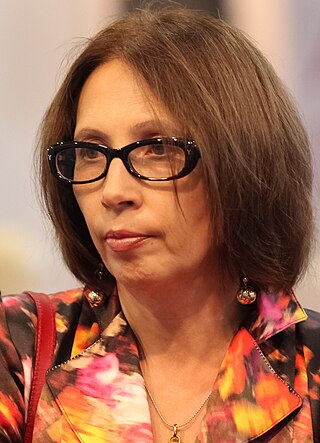
Olga Alexandrovna Slavnikova is a Russian novelist and literary critic. She was awarded the 2006 Russian Booker Prize for her novel 2017.

YMCA-Press is a publishing house originally established by the YMCA and located in Paris, also known as Librairie des Editeurs Réunis (bookstore) or Centreculturel Alexandre Soljenitsyne.
References
- ↑ Community (2017-09-12). "A Conversation Between Literary Translators Marian Schwartz and Nicky Harman". BOOK RIOT. Retrieved 2022-01-04.
- ↑ "Translator of Russian Literature, Marian Schwartz, to Read". University of Arkansas News. Retrieved 2022-01-04.
- ↑ "Marian Schwartz". www.ndbooks.com. 2011-09-30. Retrieved 2022-01-04.
- ↑ "AATIA – Marian Schwartz featured in current edition of Source". aatia.org. Retrieved 2022-01-04.
- ↑ Christopher, Nicholas (1988-11-13). "EAVESDROPPING ON THEIR TRYSTS". The New York Times. ISSN 0362-4331 . Retrieved 2022-01-04.
- ↑ "2013 Best Translated Book Award Finalists Announced". NewsCenter. 2013-04-11. Retrieved 2022-01-04.
- ↑ Gessen, Masha (2014-12-24). "New Translations of Tolstoy's 'Anna Karenina'". The New York Times. ISSN 0362-4331 . Retrieved 2022-01-04.